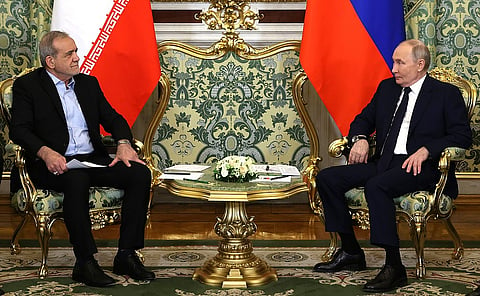

Iranian President Massoud Pezeshkian will meet with Russian President Vladimir Putin next week during the Shanghai Cooperation Organization (SCO) summit in Tianjin, China. The meeting is expected to focus heavily on the recent escalation surrounding Iran’s nuclear program and its international repercussions.
According to Iranian state media, the primary agenda will center on the E3 nations—France, Germany, and the United Kingdom—formally notifying the United Nations earlier this week of their intention to activate the “snapback” mechanism, effectively restoring pre-2015 sanctions on Tehran.
Moscow has criticized the move as “illegal,” with the Russian Foreign Ministry arguing that the mechanism undermines prior international agreements. However, under the 2015 UN Security Council resolution that endorsed the Joint Comprehensive Plan of Action (JCPOA), Russia and China do not have veto authority to block the re-imposition of sanctions once triggered by the E3.
Tehran has warned of serious consequences should the sanctions return, including potential withdrawal from the Nuclear Non-Proliferation Treaty (NPT) and the activation of new nuclear reactors to offset restrictions. Iranian officials have emphasized that such measures would be a direct response to what they view as breaches of commitments made under the JCPOA.
Beyond the SCO summit, Pezeshkian is expected to attend the Victory Day military parade in Beijing on September 2, marking the anniversary of Japan’s surrender in World War II. North Korean leader Kim Jong Un will also attend, marking the first meeting between a North Korean leader and an Iranian president.
The trip reflects Iran’s ongoing strategy of strengthening ties with Russia, China, and other eastern powers amid growing Western pressure. Energy cooperation, trade agreements, and shared opposition to unilateral sanctions are expected to feature prominently in the discussions.
Pezeshkian, who entered office under the “reformer” camp, was once perceived as a potential moderating influence. However, following Israeli strikes on Iranian nuclear facilities, U.S. airstrikes in the region, and the looming collapse of the JCPOA, his administration has increasingly pivoted toward closer alignment with Moscow and Beijing as a means of countering renewed Western pressure.